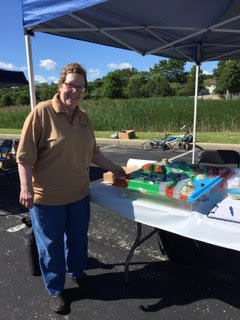 Rosemary at the Buffalo Grove Green Fair last summer, demonstrating our Enviroscape watershed model. Rosemary at the Buffalo Grove Green Fair last summer, demonstrating our Enviroscape watershed model. Thanks and congratulations to Rosemary Heilemann, our 2018 Palleon Award Winner. Rosemary is a member of the League of Women Voters Deerfield/Lincolnshire (IL) and also the League of Women Voters of Lake County (IL). She is an active volunteer with us and other Leagues, as well as outside groups such as the Sierra Club. Water protection is a frequent goal of her education and advocacy efforts. The Palleon Award was established in honor of past board member Art Palleon, who was a proponent of vigorous advocacy efforts. It was awarded to Rosemary at our 2017 Annual Meeting in Green Bay, Wisconsin. Rosemary is the first off-board recipient of the Palleon Award. Many thanks to Mary Frances Klimek, Superintendent of the Racine Wastewater Treatment plant, who led a tour for League members on August 28, 2017. She answered our many questions and was extremely generous with her time. League members who live in Racine were joined by members of the LWV Milwaukee County and other local Leagues.
On July 3rd, show your support for our Great Lakes, and water protection more generally. Like-minded people all around the lakes will SHOW UP to make their support visible by attending events at 10 am (Eastern Time) to join hands and pass a marble.
Events are already planned in many locations, but if there isn't an event near you, you are invited to organize one. This would be a terrific, quick project for a local League! All the information, including locations, is available from All Hands on Deck. The Great Lakes are a global hub of oil refining. There are many pipelines traversing the state of Michigan. In 2010, a pipeline (6B) owned by Enbridge discharged over 1 million gallons into the Kalamazoo River. A series of dams prevented it from reaching Lake Michigan, but the damage was extensive.This was the warning that awoke Michigan’s concerns. Enbridge made the largest settlement for the largest inland “spill”. It must be told that not all the oil was removed. Because this was a heavy tar sands oil, it dropped to the bottom of the river, trapped in sediment. After extensive dredging, it was determined that to do anymore, would cause great harm to the river’s ecosystem. Lessons learned from this accident demonstrated that Enbridge’s claims that they employ technology designed to detect and shut down the oil flow, should such an event occur, is not true.The Kalamazoo River oil discharge went on for 17 hours before residents reported the leak. The 2010 Kalamazoo River discharge prompted a National Wildlife Federation review of existing pipelines in Michigan. One pipeline was highlighted because of it’s age and location. Pipeline 5 travels from Wisconsin, through the Upper Peninsula of Michigan, under the Straights of Mackinac through the Lower Peninsula and exits at a refinery in Sarnia, Ontario. It is estimated that only 5-10% of this oil is used by Michigan. The rest is shipped, with a great deal going to Great Britain. The pipeline portion under the Straights of Mackinac become a set of twin pipelines running 5 miles. They are 64 years old and carry over 500,000 barrels of light crude oil and natural gas per day. The transport of liquified natural gas through pipeline, as occurs here, is unusual. About half of this natural gas is used to heat rural, upper Michigan homes. These needs can be addressed by other transportation modes such as rail and truck. It would take 4-5 tanker trucks or 1-2 rail cars daily. A 2014 study by the University of Michigan found that the Straights of Mackinac are the “worst possible place” for an oil spill in the Great Lakes. The shifting currents where Lake Michigan and Lake Huron meet are 10X the force of Niagara Falls. An easement agreement with the State of Michigan requires support bracing every 75 feet. Enbridge has been out of compliance many times and frequently needs to apply for permits to add the required anchors. The strong, shifting currents create an unstable bottomland. Response to a clean-up incident during the winter when the Straights are frozen, would be impossible. The harsh currents at this location would make containment unmanageable. Anti-corrosive coatings are missing in 19 areas. Enbridge’s response to State of Michigan requests for inspection information has been difficult. As a lobby group they proposed legislation to protect themselves from FOIA requests due to national security concerns. Regulation of pipelines is done by the federal government. But the State of Michigan has responsibility for this portion of the bottomlands of the Great Lakes through the Public Trust Doctrine. All other pipeline disputes involve installation of new pipeline. This is the first challenge to an existing pipeline. The Governor established a Michigan Pipeline Advisory Board in 2015. Two studies were commissioned. An alternatives analysis will evaluate alternative routes or complete replacement of the pipeline. The risk analysis study will establish adequate financial assurance should a discharge occur. These studies are being conducted by private contractors, hired by Enbridge. They are due the end of June. Enbridge will have the opportunity to review, before it is submitted to the state. The contractors will present the draft on July 6, 2017, when public comment will begin. Public hearings will be held on July 24-25. After the public comment period concludes, the state will prepare their recommendations with a final draft in the Fall. Information on the pipeline and comment process can be found at: www.oilandwaterdontmix.org LWVMI has joined the Oil and Water Don’t Mix Coalition and is on the steering committee. We support the decommissioning of Pipeline 5. We support Senator Rick Jones’(R) and Senator Steve Bieda’s (D), SB 292.
LWVMI supports House Resolution 0051 (2017) urging the Governor and Attorney General to exercise their authority, immediately, to terminate the 1953 easement and shut down Enbridge Line 5 under the Straights of Mackinac. This has been referred to the House Policy Committee. Both Senators Stabenow and Peters introduced a package of bills that would increase pipeline safety in and around the Great Lakes and account for the unique needs of the Great Lakes ecosystem. The bills would:
This proposal builds on a previous bill they passed in 2015, which was signed by President Obama. The Protecting Our Infrastructure of Pipelines and Enhancing Safety Act, or PIPES Act. This Act strengthened pipeline oversight and improves response plans for oil spills under ice-covered waters. Thanks to Suzanne Dixon, a representative to the LWVLMR Board from Michigan, for submitting this article. 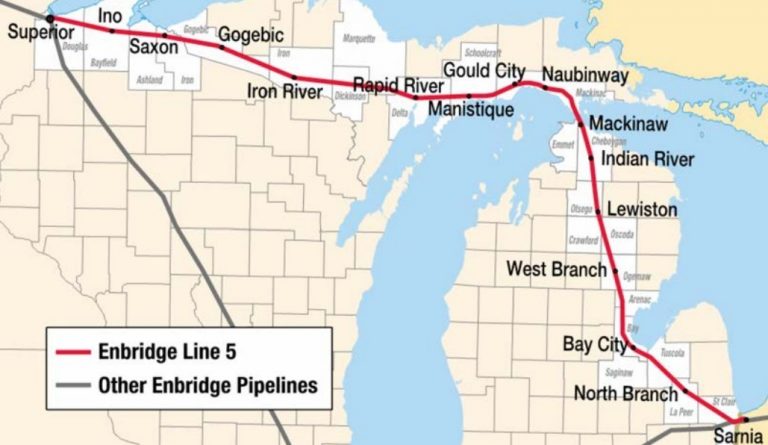 Source: Earth First Journal. Click on map to go to source. Source: Earth First Journal. Click on map to go to source. The League of Women Voters of Wisconsin (LWVWI) is working with the LWV of Ashland and Bayfield Counties to contact Governor Walker and the Attorney General, Senators, and Representatives of Wisconsin in support of the Chippewa Bad River Band's denial of renewing an easement for Enbridge's Line 5. Pipeline 5 runs through the Lake Superior tribe's lands in Ashland County. The Chippewa refuse to renew the easement on their tribal land until a meaningful tribal consultation and full environmental review--a comprehensive environmental impact statement--is completed to their satisfaction. LWVWI passed a resolution calling on their elected officials to rescind all permits and deny the easement of Pipeline 5 across the land. The League cited concerns, shared with the Chippewa, for the potential for oil leaks and crude oil pollution of the Bad River Watershed, Lake Superior, and Lake Michigan. LWVWI also acknowledged the special status of Native Americans, and respect for Tribal sovereignty and treaty rights in regard to water resources. Thank you, LWVWI for your advocacy! NOTE: This post was updated and corrected on 3/12/17. We're excited that, working with our partner, the LWV of Illinois Education Fund, we've purchased two watershed demonstration models. The models will be used to help the public visualize the many potential sources of water pollution, as well as solutions to prevent and clean up pollution.
We are grateful to the Illinois Department of Natural Resources for a Coastal Management grant that allowed us to purchase the models. We'll be debuting the models this summer in Illinois Lake Michigan coastal communities. Volunteers will be trained to use them. Check our calendar for opportunities to see them in action. HR 861 "to Terminate the Environmental Protection Agency" has been referred to several committees in the House since its introduction on Friday, Feb. 3. We are proud Judy Beck and Jeanette Neagu, members of our board, rallied to Save the EPA today in Chicago.
Many existing environmental laws establish that they will be administered by the EPA, so we are not sure how this bill would work. Currently there is no published text or summary. Keep watching for the details, and we will, too. 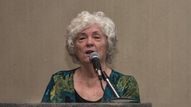 On Monday, January 23, 2017, LWVIN Natural Resources Advocate and LWVLMR Board Member Jeanette Neagu testified on behalf of the LWVIN to the Indiana Senate Environmental Affairs Committee. Her testimony was in regard to SB421 (Above Ground Storage Tanks) which would serve to repeal SEA 312 -- a bill the LWVIN fought to put in place in 2015. Read Jeanette's testimony here and learn why SB421 would jeopardize Indiana's water supplies. Thank you for your advocacy on behalf of clean water, Jeanette! Clinton and Trump Campaigns Pledge Ongoing Support for the Great Lakes Restoration Initiative9/28/2016
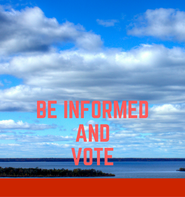 The Healing Our Waters--Great Lakes Coalition invited both major party Presidential candidates to speak at its annual restoration conference held last week in Sandusky, OH. Representatives from both campaigns attended, gave statements and answered several questions moderated by Todd Ambs, coalition campaign director. Great news: both pledged to continue support for the Great Lakes Restoration Initiative (GLRI), if elected! LWVLMR encourages all voters to be informed about where the candidates stand on Great Lakes issues. Healing Our Waters has posted videos from the forum on Facebook. Watch and determine which best represents your views on the importance of and emphasis on the lakes: Trump campaign representative, Mike Budzik, past chief, Ohio Division of Wildlife under Ohio Gov. Bob Taft, and Clinton campaign representative David Hayes, former deputy secretary, Department of Interior in the Obama Administration. LWVLMR has advocated for federal funding of the GLRI with the Coalition since the start of the program. The GLRI has brought $2.2 billion of restoration projects to the Great Lakes over the last seven years, but much work is still needed to improve the health of the lakes.  #goals #goals Charlotte Adelman, one of the leaders of our upcoming (sold-out!) tour of native plant gardens in Wilmette, Illinois, is an expert on native plants. So which books on native plants has she found useful? She was kind enough to share her favorites with us. Whether you are taking the tour or not, check out the following books to learn about native plants' many environmental benefits and gain insights into how to incorporate them into your own garden:
Charlotte herself is the author of The Midwestern Native Garden: Native Alternatives to Nonnative Flowers and Plants and the forthcoming Midwestern Native Shrubs & Trees: Gardening Alternatives to Nonnative Species. We are lucky and pleased to be able to share her expertise with our members and others who care about the Lake Michigan ecosystem! |
Archives
December 2017
Categories
All
|

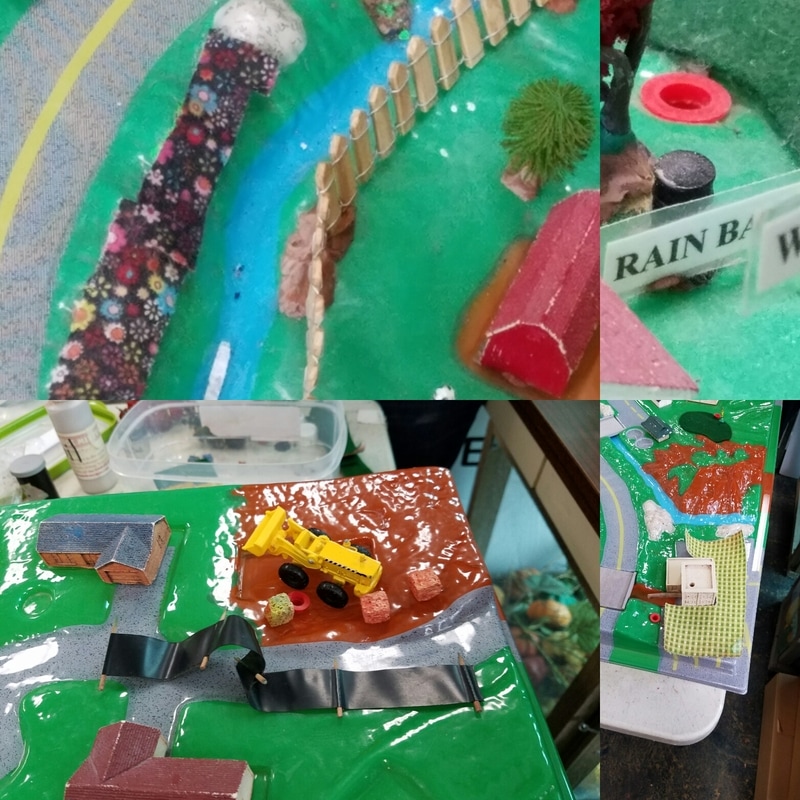
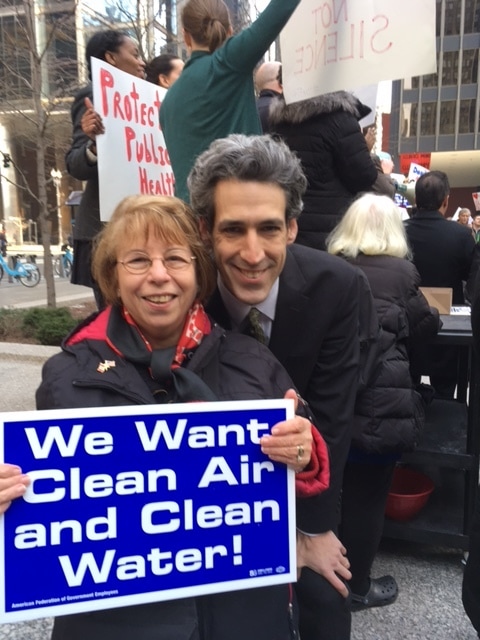
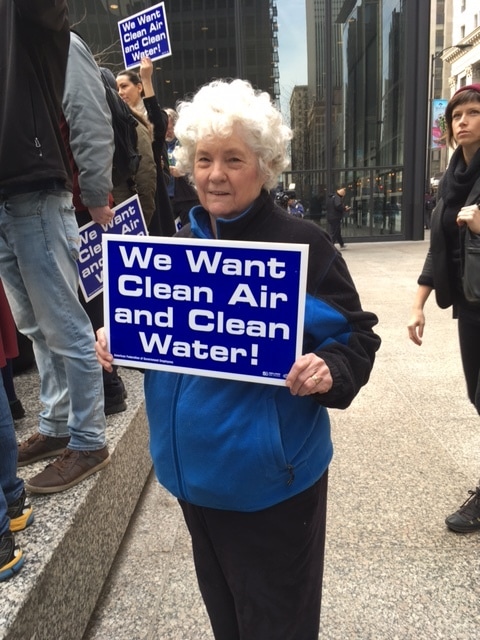
 RSS Feed
RSS Feed